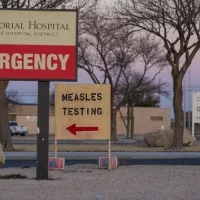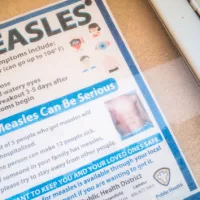 iStock Editorial(PHILADELPHIA) — Tweeting a lot of four-letter words about how miserable you are or how much you hate stuff? It may offer a glimpse into your heart health, new research shows.
iStock Editorial(PHILADELPHIA) — Tweeting a lot of four-letter words about how miserable you are or how much you hate stuff? It may offer a glimpse into your heart health, new research shows.
University of Pennsylvania researchers studied 140 million random tweets from 2009 and 2010, and learned that what people said on the social media site correlated with heart disease mortality rates where those tweets originated. Twitter data also served as a window into psychological status, said lead researcher Johannes Eichstaedt, a Ph.D. candidate at the university.
“The single most predictive feature — the single word predictor of heart disease — is ‘hate,'” Eichstaedt said. “You couldn’t make this up.”
The study was published this week in the journal Psychological Science.
Eichstaedt said communities where people tweeted more about hostility, hatred and fatigue were also more likely to have higher rates of heart disease, according to data from Twitter and the U.S. Centers for Disease Control and Prevention. On the flip side, areas where people tweeted about optimism seemed to have lower rates of heart disease, he said.
The researchers did not have access to the health status of individual Twitter users.
Having a reason to get out of bed in the morning seemed to be a protective factor when it came to heart disease, but the data predates the “#blessed” Twitter trend, Eichstaedt said. Getting the data from the social media giant today would be much more difficult and expensive, he said.
Cardiologist Dr. Sahil Parikh, at UH Case Medical Center in Cleveland, Ohio, said he applauds the researchers’ creativity but said readers should take the results with a “very large grain of salt.”
He said it’s “reasonable” to say that negative emotions related to stress can predict heart disease events because there’s a significant body of research to back that up. But the age difference between social media users and people having heart attacks doesn’t match up, he noted.
Men are considered more at risk for heart disease and heart attacks when they reach 55 years old, and women are considered more at risk at 65 years old, Parikh said.
“I don’t know how many 65-, 75-year-old women are out there tweeting,” he said. “While there might be a lot of angry young people in a a certain area, I’m not sure how well that correlates with emotional well-being in those who are older and not Twitter users.”
Eichstaedt said his team’s research piggybacked on research about word frequency and psychological insight as well as their own work analyzing social media data. Eichstaedt’s next project will be to see whether the Twitter data has any indication for other health issues, such as diabetes and cancer.
Follow @ABCNewsRadio
Copyright © 2015, ABC Radio. All rights reserved.













